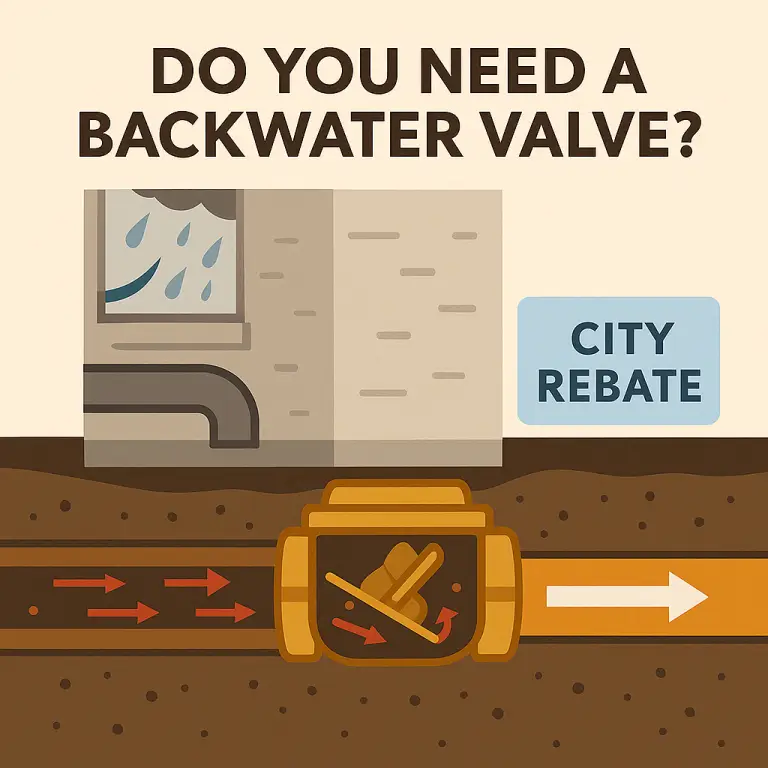
Imagine this: you’re in your basement after a summer thunderstorm, and you notice a strange smell. Then you see it — brownish water seeping up through the floor drain, soaking your laundry room and spreading across the floor.
It’s every homeowner’s nightmare, and unfortunately, in many parts of Toronto and the GTA, it’s far too common. Sewer backups aren’t just gross — they’re dangerous, damaging, and expensive.
The good news? One small piece of equipment can stop it from ever happening: the backwater valve.
Let’s talk about what it is, how it works, and why your home may need one.
A backwater valve (also called a backflow preventer) is a one-way gate installed on your main sewer line. It allows wastewater to flow out of your home into the city sewer system — but prevents anything from flowing back in.
When city sewer lines get overwhelmed (which happens more and more with extreme rainfall), they can push wastewater back into homes. Without a valve, your basement could become ground zero for that mess.
With a valve? It stays shut, and your home stays dry.
Backwater valves are especially important if:
Your home’s lowest drain (like a basement floor drain or laundry sink) is below street level
You live in an older neighborhood with a combined sewer system
You’ve had previous water or sewage backups
Your area experiences flash flooding or heavy rain
You’ve added a finished basement, second unit, or basement bathroom
Basically, if your plumbing connects to a city sewer — and most homes do — you’re a candidate for one.
Some newer homes are built with a backwater valve already in place. But in older homes, it’s unlikely unless it was added during a renovation or after a backup.
Check your basement floor for a square plastic cover or access panel labeled “backwater valve” — usually near your floor drain. Still unsure? We can inspect and tell you in minutes.
Here’s what the process usually involves:
We locate your main sewer line, usually under the basement floor.
We dig a small trench and cut into the pipe.
We install the valve, test it, and patch the floor.
You get peace of mind — and often, a rebate.
Most backwater valve installs are done in a single day, and UPR handles all permits, plumbing code compliance, and even helps you apply for city rebates.
In Toronto, homeowners can apply for a Basement Flooding Protection Subsidy that reimburses up to $1,250 for backwater valve installation (as long as it’s done by a licensed plumber like UPR).
We’ll guide you through the application process, provide the paperwork, and make sure everything is done to code.
The worst time to think about backwater valves is after the damage is done. If you’ve got a finished basement, rental suite, or just want to avoid a costly mess, now’s the time to get protected.
Call 647-833-6743
Book a Backwater Valve Inspection or Install
Serving Toronto, Etobicoke, North York, Scarborough, and nearby cities